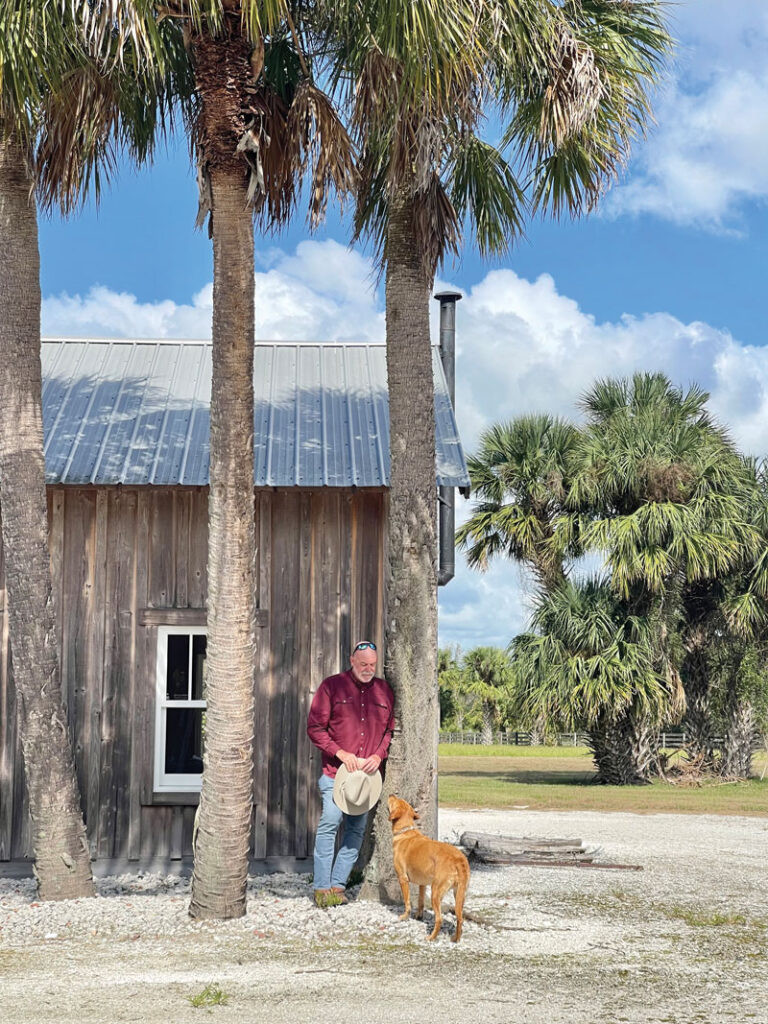
Dykes Everett lives in a comfortable Winter Park home near Mead Garden and works in a secluded second-floor office on Park Avenue. But, as the song says, his home is on the range, where the deer and the antelope play. And if you’re a rancher the range is also where the cows play — or at least graze, which is about as playful as cows get.
A burly bear of a man who favors a denim-and-boots wardrobe and speaks softly with a rumbling (but refined) Florida Cracker accent, Everett — who was raised on a citrus farm and cattle ranch in the rural Brevard County community of Mims — is truly Winter Park’s conservation cowboy.
For 22 years, he practiced law at button-down Winderweedle, Haines, Ward & Woodman — a long-established firm with a roster of prestigious clients — before returning to his ranching roots and later opening a consultancy, Dykes Everett & Company, that encourages large landholders (mostly generation-spanning, family-owned agricultural and ranching operations) to embrace conservation and preservation.
“I do feel that God really owns the land,” says Everett, 62, from his office, which is adorned with vintage farming and ranching ephemera and such sentimental items as a metal-handled minnow-catching net that his father forged for him more than a half-century ago. “We’re here only as stewards. That’s the way we should look at.”
A Cowboy’s Prayer
I thank you, Lord, that I am placed so well,
That you have made my freedom so complete;
That I’m no slave of whistle, clock or bell,
Nor weak-eyed prisoner of wall and street.
Just let me live my life as I’ve begun,
And give me work that’s open to the sky;
Make me a partner of the wind and sun,
And I won’t ask a life that’s soft or high.
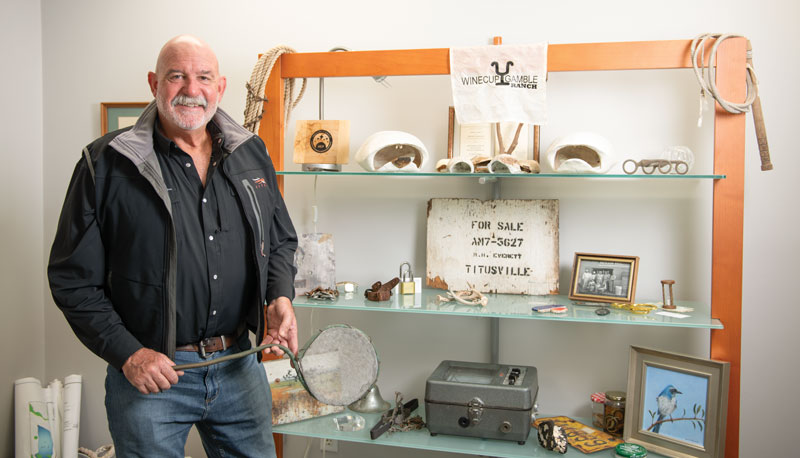
Everett describes himself as a “large-land strategist” and a “conservation dealmaker” who helps his clients create master plans for their sprawling acreage.
The goal is to preserve what’s most ecologically significant through the sale of conservation easements — usually to the state through such programs as Forever Florida or the Rural and Family Lands Protection Program — and to monetize the rest through agriculture or development.
A rancher himself, Everett previously owned the 500-acre Turkey Track Ranch in West Volusia County — now part of the Florida Wildlife Corridor, a statewide network of nearly 18 million acres of connected lands and waters — and currently owns the 163-acre Christmas Creek Ranch in East Orange County, while leasing the adjoining 130 acres.
Although he ran cattle for years — eventually accumulating as many as 400 head across all his owned and leased properties — Christmas Creek is now dedicated primarily to conservation and habitat restoration. He’ll likely bring cattle back to the remaining leased acreage once pasture work is completed.
Through his decades of lawyering and consulting, Everett has had a hand in the conservation of more than 2 million acres in the United States. During the past 15 years, he has overseen the management and operation of more than 1.3 million acres of farms and ranches and 35,000-plus head of cattle.
In the last decade, his companies have handled the restructuring and disposition of at least $1 billion in commercial, industrial and residential real estate. “I’m like a duck,” muses Everett about running such a vast enterprise while maintaining his legendary easygoing demeanor. “Tranquil on the surface but underneath I’m kicking away.”
HOME ON THE RANGE
Everett’s family — his parents, Roy and Mary, and an older sister, Cathy — moved from South Georgia to Mims, where Dykes was born shortly thereafter. Roy had been in the citrus and cattle business back home, but became an engineer for various NASA contractors after settling in the Sunshine State.
The elder Everett, though, missed farming and ranching. He left office work behind and bought a citrus grove when his son was age 10.
“It was a great life, and kind of romantic,” recalls Everett of his youth. “Dad got me a shotgun and I learned to hunt and fish. By the time I was 12, I was driving tractors and trucks. I wanted to stay a farmer, but the citrus freezes were getting more severe. Dad wanted me to go to law school, which was a good decision. But a part of me thought that I’d come back after I graduated.”
Everett attended UCF — while still working full-time in the family business — and graduated in 1982 with an undergraduate degree in political science and economics. He was then accepted to the University of Florida College of Law in Gainesville, where he excelled and made the law review — a coveted credential. A law review colleague with whom he struck up a close friendship was named Tim Haines, from a place called Winter Park.
Everett says he knew almost nothing about Winter Park — except that it was decidedly not Mims and would certainly encompass no farms or ranches. But Haines, as it happened, was the grandson of Webber Haines, who was co-founder of a law firm in the picture-postcard town with classmate Elbert “Red” Winderweedle.
Also attending UF’s law school was Lisa Simonton, who taught legal writing and had been Everett’s guide during a tour of the law library. A mutual friend, at Everett’s behest, set up an “accidental” meeting at a pizza restaurant that both would attend.
“Thanks to this mutual friend, I was apprised of the purposes of this meeting before it occurred,” says Lisa, who has now been married to Dykes for more than 35 years. “Men are gullible.”
Raised in Alexandria, Virginia, and later the resort town of Ponte Vedra Beach in Northeast Florida, Lisa — who says that she had never dated anyone with a Southern accent, much less anyone who grew up in a rural area — was intrigued with down-to-earth Dykes.
“I may not have been cognizant of the fact much of Florida was rural,” she recalls. “To me, this background — so different from my own — made him slightly exotic.”
The deal was all but sealed on their second date, when Everett showed up not with a bouquet but with a huge bone from a butcher shop to present to Lisa’s Great Dane. With the dog happily occupied gnawing, the pair went to dinner at The Yearling Restaurant near Marjorie Kinnan Rawlings State Park in Cross Creek.
“I drove a Jeep and had a huge dog, which somehow managed to give Dykes the impression that I was a bit more of an outdoorswoman than I truly was,” says Lisa. “Fortunately, the doctrine of caveat emptor [buyer beware] was well established.”
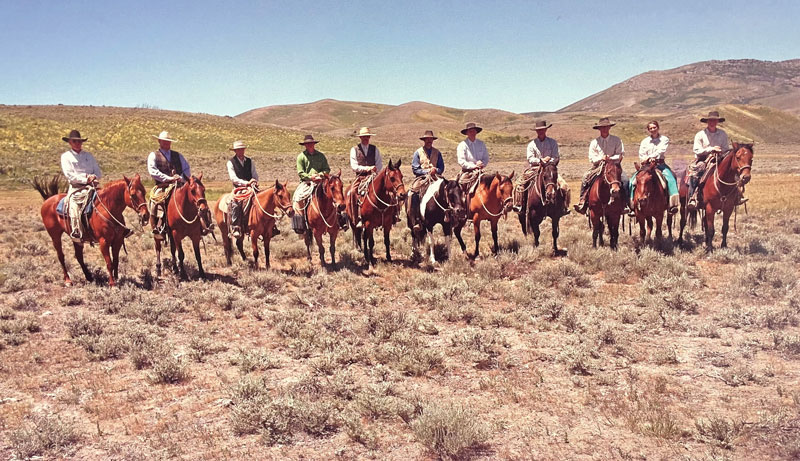
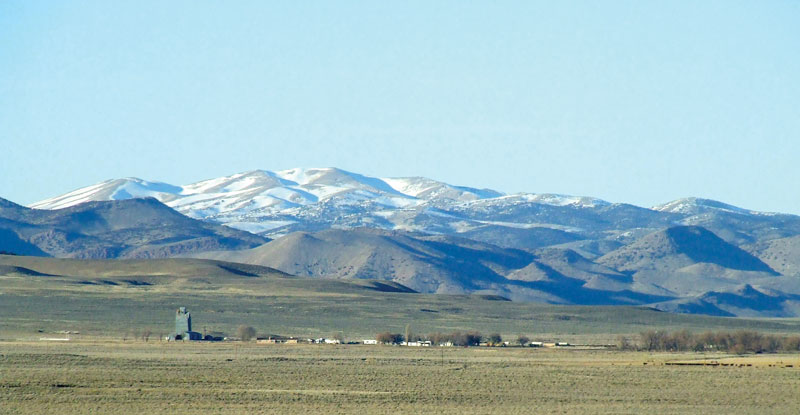
PUTTING DOWN ROOTS
Everett graduated in 1985, passed the bar exam and — with offers from every firm that interviewed him, including some high-powered big-city practices — became an associate attorney at Winderweedle, which had been stouted by his friend Haines.
“I valued Dykes’ common sense, which is something invaluable to a lawyer for which there is no course or certificate,” recalls Bill Walker, a now-
retired senior attorney at the firm. “Further, I noted he was wise, in the sense of making sound judgments that had long-term consequences. His roots in Mims, plus mine in Palatka, made it an easy mix. We were both country boys.”
Everett moved that summer to Winter Park and found a one-bedroom apartment at the now-demolished Spanish Oaks apartments on North Park Avenue. He recalls: “Everything I owned fit into the trunk and back seat of my Toyota Corolla.”
Lisa, who had graduated from UF the prior year, was in Tallahassee for a year-long clerkship with Justice Ben Overton at the Florida Supreme Court, after which she headed to Atlanta for a job as assistant regional counsel for the Environmental Protection Agency.
It appeared that Dykes’s and Lisa’s divergent career paths had thwarted their law-school romance until Lisa was hospitalized in Atlanta with kidney stones.
“Dykes found out and called me,” she says. “He insisted that he was going to come up there. I begged him not to and promised to meet him instead in Orlando when I went to the Florida Bar convention a few months later.”
Not surprisingly, upon their reunion sparks flew anew and Lisa moved to Orlando, where she began a clerkship with U.S. District Judge Patricia Fawsett. Lisa — who initially thought Dykes had erred by joining a small firm in a small town — married him in 1987.
“Dykes had a carefully considered plan that I didn’t fully appreciate at the time,” she says. “He has always followed his own path.”
Everett’s career thrived at Winderweedle. “Much of my practice was in land use and real estate,” he says. “I enjoyed that because it kept me connected to the agriculture and ranching communities.” He also served stints as city attorney for Orlando and Winter Garden while at the firm.
“It was a great practice, and I developed some great clients over the years,” adds Everett. “I was blessed with really good and capable senior partners who taught me and encouraged me.”
PRACTICAL PRESERVATION
In 1995 and 2000, respectively, Everett became outside counsel to the St. Johns River Water Management District and the South Florida Water Management District. There are five such districts in the state with the mission of ensuring a long-term supply of drinking water and protecting and restoring the health of water bodies within their boundaries.
During that time, conservation was a political priority with wide bipartisan support. In 1990, the state stepped up its effort to acquire ecologically important land through a program called Preservation 2000, which was supplanted in 2001 by Forever Florida and the Rural and Family Lands Protection Program.
Such programs — in addition to water management districts and nongovernmental conservation organizations — may buy preservation land outright.
But in many cases, the use of conservation easements, in which the land remains privately owned and maintained, makes more economic sense.
A landowner voluntarily sells not the land itself but development rights to all or part of it. Granting public access is not required and current uses — such as farming and ranching — are allowed to continue. But the easement protects designated tracts for open space and wildlife habitats.
Everett, in fact — working on behalf of the St. Johns County Water Management District — was among the first to employ this method on a large scale in 1997, when the district acquired a conservation easement on 11,768 acres of the 13,952-acre Escape Ranch in the Osceola County community of Kenansville.
Today the ranch runs cattle — as it always has — and encompasses a guest house and a hunting lodge. It’s also home to scores of endangered, threatened and rare plants and animals, including what may be Florida’s largest population of sandhill cranes.
Everett, with his ranching background, carved out a reputation as someone who had mastered this process and could explain its advantages — including significant tax breaks — to landowners who might or might not have been motivated by a passion for conservation.
He ultimately leveraged his stature as someone whom landowners could trust to balance their interests with those of conservationists to start Dykes Everett & Company in 2007. “It was just me, my cellphone and my laptop,” he says.
It wasn’t long until the company — which eventually grew to 18 people — had more business than it could handle. And the negotiation of conservation easements was only a part of it; there were also land-development ventures and third-party management arrangements with farms and ranches.
Everett also became a director for Alico Inc., a public company based in Fort Myers that owned 130,400 acres of mostly agricultural land in Florida. In addition, he became a a director for Atlantic Blue Group, a company formed from the estate of the late citrus baron Ben Hill Griffin Jr. in Lake Wales.
Through it all, Everett became known as a turnaround specialist for troubled agricultural operations. Soon would come the biggest turnaround project that the modern ranching industry had ever seen.
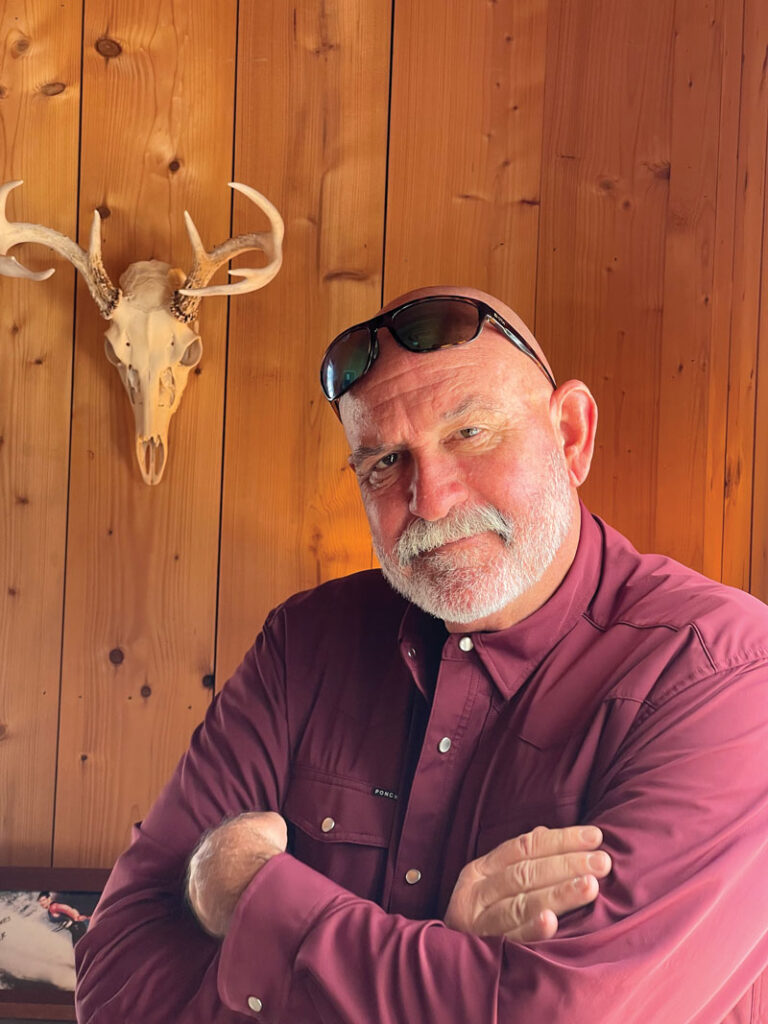
THE WILD, WILD WEST
Perhaps Everett’s most intriguing — and certainly largest — project was the rehabilitation and management of the historic Winecup Gamble Ranch in Northeastern Nevada.
The spread, an astonishing 1 million acres in size, could trace its history to before the Civil War and had been owned for several years in the 1950s by actor Jimmy Stewart, for whom it was both a ranch and a retreat.
In 1993, through a series of transactions, Winecup Gamble — which, among other ranching activities, ran 10,000 head of cattle — had ended up in the portfolio of Paul Fireman, CEO of Reebok International, who hired Everett’s company to set up shop in Nevada and scope out the situation.
According to Everett, in many respects the poorly run ranch might as well have been operating in the 1850s.
“It really seemed like the Old West,” he recalls. “Cattle rustling was a big problem. We had sidearms pulled on us. It was basically lawless because it was so remote. If you called 911, nobody was going to come. And if you broke down in the middle of nowhere, you were just going to have to wait until somebody else came along.”
Everett, who had traveled to Nevada — and, apparently, back in time — with his adventurous associate Keith Holcomb — poked around for several days and identified numerous operational deficiencies. He later climbed a hill where he could pick up a cell signal and called Fireman to recite the litany of challenges that he and Holcomb had uncovered.
“Well, can you fix it?” Fireman asked. Yes, responded Everett, he believed so. Barked Fireman: “Well, fix it then!” So began a four-year adventure that saw Everett visit periodically while Holcomb lived on the ranch full time and became the literal boots-on-the-ground guy.
“It was all wildly exciting to me,” says Holcomb, who was a rancher in Okeechobee and initially met Everett through a land transaction handled by Winderweedle.
One gets the impression, speaking to Holcomb via phone from his home in Texas, that it didn’t require much persuasion to secure his agreement to relocate to this isolated and even dangerous frontier outpost. He never gave it a second thought, he says, thanks mainly to his regard for Everett.
“When I first met Dykes, it was like I knew we were cut from the same cloth,” says Holcomb. “Right away, he seemed like a guy I had known for years. Dykes is disarming but brilliant and always two or three steps ahead of guys like me on the big-picture stuff. When he asked me about taking this on, I said: ‘Let’s go!’”
By 2016, a writer in The Land Report magazine had this to say about Winecup Gamble: “In a storied corner of the Old West, Paul Fireman has instituted one of the greatest turnarounds in the annals of American ranching. Some will no doubt attribute the successes of this cadre to luck. I will gladly second that notion as long as luck is defined as follows: when preparation meets opportunity.”
RIGHT THING, SMART THING
Everett has since continued his work — albeit on a smaller scale — and turned more of his attention to community service. He proved particularly effective as a board member of Audubon Florida, says Eric Draper, formerly the organization’s executive director who retired in 2021 as head of the Florida Park Service.
“Dykes always does the right thing and the smart thing,” says Draper, who adds that Everett’s ability to move effortlessly between the sometimes-
feuding worlds of development and conservation opened countless doors for the organization.
“He has a way about him that makes it very easy to receive information from him,” adds Draper. “He could build coalitions of ranchers, developers and foresters — he enjoyed the complete trust of each group.”
Dykes and Lisa helped to organize Audubon Florida’s first major fundraising event in Central Florida: “Song of the Earth and Sky,” which debuted in 2018 at the Winter Park home of longtime supporters Dick and Mimi Ford and raised more than $100,000. That same year, the society honored the couple as “Philanthropists of the Year.”
Among Everett’s other board memberships are with the Florida Cattlemen’s Association Foundation, the LeRoy Collins Institute at FSU and the National Center for Integrated Coastal Research at UCF. He’s also on the board of the Winter Park Land Trust, a local organization seeking to secure and connect more greenspace in the city.
More recently, Everett and former colleague Bill Walker co-founded the “No-Name Civility Posse,” a group dedicated to restoring and fostering civil community debate. Everett also served on the vestry of All Saints Episcopal Church and was a trustee at Trinity Preparatory School, where both his sons attended.
The offspring are James, now 33, who graduated from Stanford University, and Chase, now 28, who attended the University of North Carolina Chapel Hill and graduated from Rollins College. James works in the family business, while Chase is a consultant with the FBI in Washington, D.C. But both were actors and musicians in school.
“When our boys were young, I was extremely involved in doing what I could to help out with the arts programs in their schools,” says Lisa — who spent several years as law clerk for Judge George C. Young in the 11th Circuit Court of Appeals before retiring from active practice. She has served nearly a decade on the board of the Orlando Philharmonic Orchestra.
Dykes — a collector of Florida landscape paintings who shares his wife’s passion for all things arts related — is equally glad that James and Chase grew up to appreciate the outdoors. “We’ve worked hard to get that ethos in our boys,” he says. “I think a person is best made outside, not inside.”
What kind of world will future generations inherit? It worries Everett that the so-named “Great Acceleration” in population growth and climate change have long since outpaced humanity’s ability to mitigate the ensuing negative impacts. “We’re at a place where the natural world is in retreat,” he says. “But I’m still going at 100 percent. I’ll keeping doing this until I die.”
Everett’s accomplishments, professionally and personally, are inarguably impressive and impactful. But to find out all you really need to know about the person behind the conservation dealmaker’s curriculum vitae, just go to his office and ask about that home-made minnow-catching net proudly displayed on a shelf among other rustic memorabilia.
“I really regret not appreciating this as much as I should have when my dad gave this to me,” he muses, holding the cherished object in his cowboy-sized hands and examining it while explaining its backstory to a visitor. “You know, I just can’t talk about this without starting to get a little choked up.”

